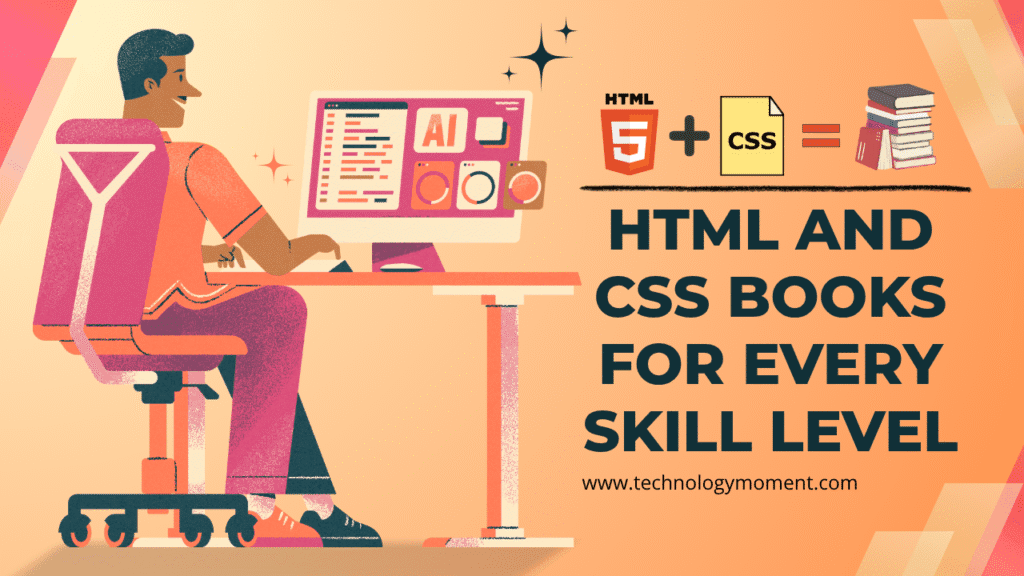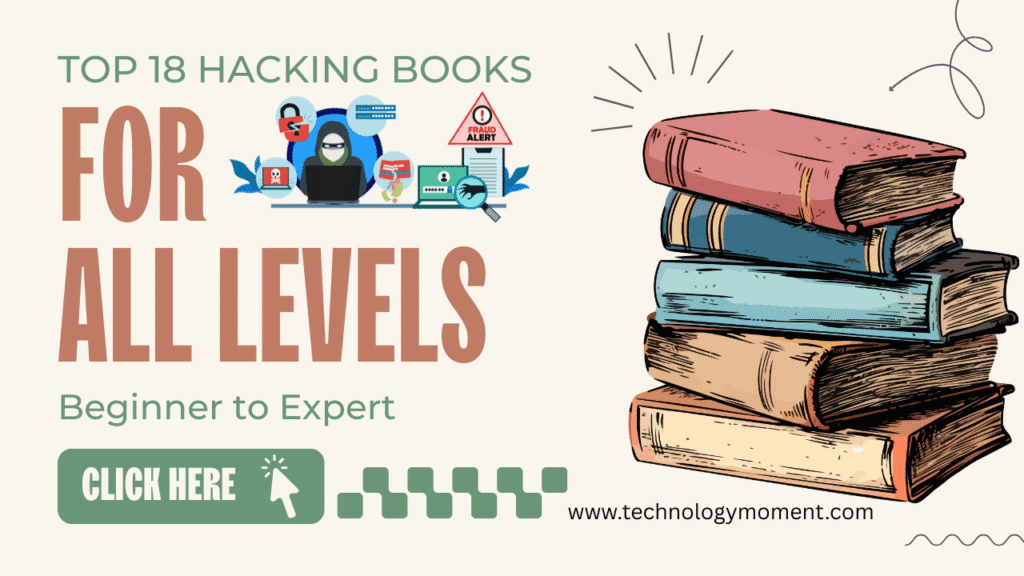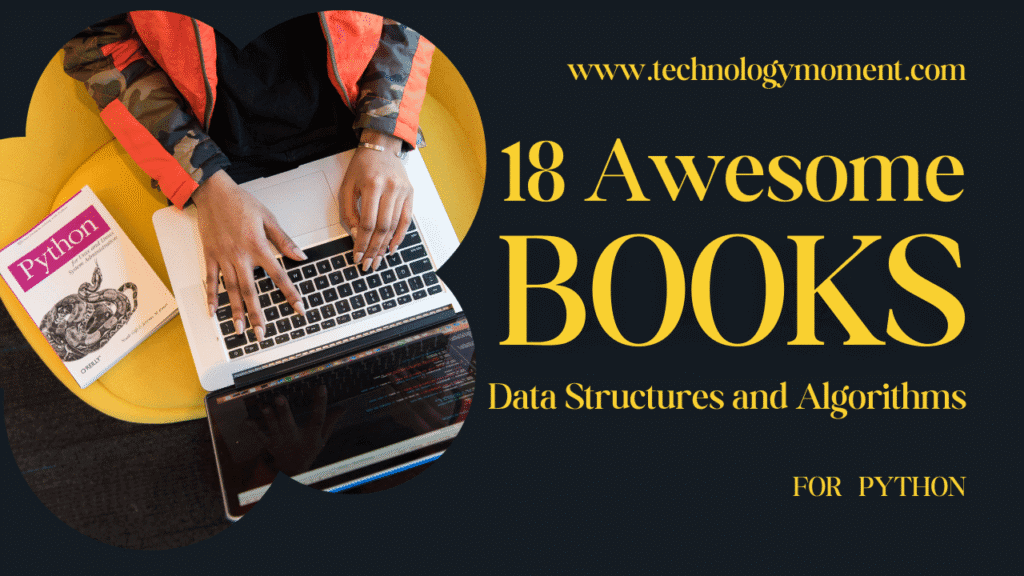Welcome to Technology Moment, your go-to corner of the internet where tech meets real life, and learning becomes a conversation—not a lecture. We’re not here to overwhelm you with buzzwords or throw a wall of syntax at you. Our goal is simple: to help you grow your knowledge in a practical, human-first way.
Let me tell you a story. A few years ago, a high school teacher from Ohio named Daniel found himself fascinated by the way websites worked. He wasn’t a coder—he was teaching American History—but one day, while helping his students build a class blog, he fell down the JavaScript rabbit hole. The tutorials confused him. YouTube videos skipped too many steps. Then, he picked up a book recommended in a Reddit thread. The way it broke down the concepts—piece by piece—transformed his learning. Six months later, Daniel was freelancing as a front-end developer.
That’s the kind of transformation Technology Moment lives for.
We understand that learning JavaScript isn’t just about understanding code; it’s about seeing how it fits into your world. It’s the feeling of satisfaction when you write your first interactive webpage. It’s about building something that works, something you can show to your boss, your clients—or even your kids.
As we walk through the Best JavaScript Books for Learning in 2025, think of this guide as a mentor over your shoulder, pointing you in the right direction. These books aren’t just words on a page—they’re potential game-changers, like they were for Daniel, or for countless others who’ve jumped careers, built startups, or simply scratched their curiosity itch.
In today’s fast-paced tech world, you need more than a quick tutorial. You need clarity, structure, and the kind of deep learning that only the right book can offer. The books we’ve included in this guide are not chosen because they’re trendy—they’re chosen because they work. They’ve helped beginners land their first coding job in New York, guided freelancers in San Francisco to write cleaner code, and given developers in rural Texas the confidence to launch their own SaaS product.
So, grab a cup of coffee (or a Mountain Dew, if you’re working late), and let’s dive in. Because here at Technology Moment, we believe that everyone—yes, even you—can learn JavaScript and build something great. Let’s get started.
Table of Contents
Learning JavaScript in 2025 is more exciting—and more relevant—than ever. In the fast-evolving world of tech, some programming languages come and go like fads, but JavaScript keeps proving itself as a foundational tool, not just for the front end, but across full-stack development, mobile apps, automation, and even machine learning.
Picture this: a 19-year-old student in Ohio, Sarah, wanted to build a web-based budgeting tool for her family’s small business. She didn’t know where to start. Her college offered Python, but the tutorials she found on YouTube all used JavaScript. She gave it a shot. Within three weeks, she had a working prototype using simple JavaScript and HTML. A year later, she was freelancing, building similar tools for local stores.
JavaScript remains one of the most beginner-friendly languages because you can write it directly in your browser, see instant results, and gradually expand your skills without needing a fancy setup. But with great power comes overwhelming choices—frameworks, libraries, async code, APIs… it’s a jungle. And the best guide in that jungle? A well-written book.
Books offer depth and structure. While videos give you quick wins, books train you to think critically and write clean, scalable code. In 2025, with so many fragmented learning resources online, having a single, trustworthy guidebook is like having a compass in a storm.

📗 Best JavaScript Books for Beginners
Let’s talk about the start of your JavaScript journey. Learning any new skill can feel like trying to drink from a firehose. That’s why beginner books matter—they slow things down and walk you through real examples in plain English.
Take Marcus, a truck driver from Nebraska. In his downtime, he decided to build a website for his wife’s bakery. He picked up Eloquent JavaScript by Marijn Haverbeke after reading Reddit recommendations. While the book is a bit dense at first, Marcus appreciated the interactive code examples and the way the author treated the reader like an intelligent learner, not just a hobbyist. By the time he finished chapter 5, he had a basic understanding of variables, loops, functions, and DOM manipulation.
Then there’s JavaScript for Kids by Nick Morgan. A homeschooling mom in Georgia, Lisa, used this book with her 13-year-old daughter and ended up learning alongside her. The simple explanations, illustrations, and humor made coding fun. Before long, they were building browser-based games together.
Finally, Learn JavaScript Quickly by Code Quickly is perfect for folks who don’t have time to waste. Think about Diego, a warehouse supervisor in Arizona who wanted to switch careers. He used this book on his night shifts, committing just one hour a day. The book’s step-by-step breakdowns and practical mini-projects gave him the confidence to apply for a junior dev internship within three months.
The common thread? Beginner books that don’t assume you’re a genius. They explain not just the “how,” but the “why”—and that’s key when you’re just starting out.
📘 Best Foundation-Level JavaScript Books
Once you’ve dipped your toes in and know what variables, loops, and functions are, you’re no longer a total beginner—you’re in the foundational stage. Now you need books that start connecting the dots and building real-world context.
Let me introduce you to JavaScript: The Definitive Guide by David Flanagan. This book is like a JavaScript encyclopedia—but don’t worry, it’s not as scary as it sounds. Jake, a junior dev in Austin, Texas, used this book as his “developer Bible.” Anytime he was confused about an event listener or the prototype chain, he’d flip to the relevant section. What made this book invaluable was how it combined reference-style documentation with tutorials. It’s not a book you necessarily read cover to cover—it’s one you grow with.
For more visual learners, JavaScript and JQuery by Jon Duckett is a game changer. Alexis, a graphic designer from Chicago, wasn’t keen on reading blocks of code. She loved design but hated math. This book, with its full-color pages, infographics, and real-world UI examples, helped her bridge the gap between creativity and code. In just two months, she transformed static designs into interactive web pages.
Then there’s Beginning JavaScript by Jeremy McPeak, ideal for those making the leap from beginner to builder. Think of Elijah, a substitute teacher in Florida who wanted to build an educational tool for students. This book walked him through coding structure, error handling, and debugging techniques—all things beginner books don’t really cover. Within months, he deployed his own learning portal.
Foundational books are about one thing: turning confidence into competence. They expand your skills from making things “work” to making things work well.
📙 Best Intermediate-Level JavaScript Books
Now that you’re past the basics and building real projects, it’s time to dive into intermediate-level JavaScript. This is where things get serious—and fun.
Maria, a bootcamp grad from San Francisco, swore by this series. She said reading it was like upgrading from casual driving to F1 racing. It explores the why behind JavaScript—hoisting, closures, scopes, async functions. These aren’t always covered in tutorials or basic books, but they’re essential for writing smart, maintainable code.
Another hidden gem is JavaScript Patterns by Stoyan Stefanov. This book taught Darren, a freelance developer in New York, how to write better-organized code. Early in his career, he was getting stuck in “spaghetti code” nightmares—code that was impossible to update or reuse. Patterns helped him solve that. By understanding module patterns, singleton usage, and best practices, he started landing better contracts and earning more money.
And for those who want a smooth introduction to functional programming, Functional-Light JavaScript (again by Kyle Simpson) is gold. Nina, a product manager who wanted to understand what her dev team was talking about, picked up this book after hearing words like “pure functions” and “immutability” in meetings. It was written in a way that made advanced concepts easy to digest, even for non-coders.
At the intermediate stage, you’re sharpening your tools. You’re learning how to think like a developer, not just how to type code that runs.
🔥 Best Advanced-Level JavaScript Books
Once you’ve nailed down the basics and can build decent web apps, the next challenge is understanding why JavaScript works the way it does. This is where the real magic begins.
Let me tell you a quick story. A friend of mine, David from Boston, was a React developer working on UI components for an e-commerce site. One day, his boss dropped a bomb: “We’re migrating the checkout engine to a service worker–based offline-first model. Can you lead it?” David panicked. He could write components all day but had no idea how JS worked under the hood.
That weekend, he picked up “Secrets of the JavaScript Ninja” by John Resig (yes, the jQuery guy). Within a few weeks, his understanding of closures, memory leaks, and asynchronous event queues exploded. He led that project and got promoted within three months.
Another book that reshapes your approach is “Professional JavaScript for Web Developers” by Matt Frisbie. This book is like your technical mentor. It covers everything from data structures, scopes, and modules to ES6+ features. It’s built for someone already working in JavaScript but looking to architect systems and not just features.
And if you’re into Functional Programming—which, by the way, is everywhere from Netflix’s codebase to Google’s real-time services—“Mastering JavaScript Functional Programming” by Federico Kereki will reshape how you code. Imagine rewriting your existing app to be 20% more efficient, easier to debug, and immune to side-effects. That’s what this book teaches you with real-world examples and patterns.
👉 Bottom Line: Advanced-level books are about rewiring how you think about problems. These aren’t just books—they’re career accelerators.
🏆 Best Expert-Level JavaScript Books
This is the league of engineers building for scale. If you’re asking, “How do I build something that handles a million users?”—you’re in the right zone.
In Silicon Valley, I once met Michelle, a senior developer working for a food delivery giant (think DoorDash scale). Her team faced constant issues with spaghetti code APIs and rising maintenance costs. She took two weeks off, came back after devouring “Designing Web APIs with JavaScript” by Brenda Jin, and rewrote the service architecture with RESTful standards, proper versioning, and error handling. The dev team cut bug tickets by 50% in the next release.
Then there’s “Maintainable JavaScript” by Nicholas C. Zakas—this is gold for long-term code health. Imagine a growing app with 100K+ lines of JavaScript. If you don’t write code for readability, you’re planting landmines for the next dev. This book teaches you how to think like a team lead—clean, reusable code, naming conventions, and testing philosophies.
Lastly, “Programming JavaScript Applications” by Eric Elliott brings everything together. It’s a practical guide to building large-scale SPAs (single-page apps), handling real-time data, modular design, and even covers writing secure code. Elliott’s insights come from actual enterprise scenarios—like handling 1000+ concurrent users or syncing offline edits once a connection is restored.
👉 Expert-level books are for builders who want to write production-ready, maintainable, and scalable systems. If advanced books sharpen your blade, these teach you how to wield it like a master.
🎯 Best JavaScript Specialization Books (AI, Testing, Performance)
Now, let’s talk niche. You’ve built apps. Now it’s time to specialize. Maybe you’re drawn to AI, testing, or performance optimization.
Consider Raj, a developer in Seattle. He was obsessed with test automation. His team kept pushing buggy releases, and he hated firefighting. He grabbed Lucas Fernandes da Costa‘s “Testing JavaScript Applications.“ The book walked him through unit testing, integration testing, mocking, and real-world case studies. Three months later, he implemented a full Jest & Cypress pipeline. Bugs reduced, confidence soared, and Raj became the go-to guy for QA automation.
Then there’s “High Performance JavaScript” by Zakas—perfect for those optimizing for speed. On the West Coast, one startup shaved 300ms off their page load just by applying async loading strategies from this book. That’s huge when every millisecond affects user engagement and SEO.
And here’s a curveball—“JavaScript for Data Science” . Yes, JavaScript in data science. This book is opening new doors. You can build dashboards, handle CSVs, run regressions, or even use TensorFlow.js for browser-based AI. Imagine building an ML model right in the browser without Python. That’s the power of specialized JS.
🧭 How to Choose the Right Book for Your Level
Choosing a JavaScript book is a lot like picking a workout plan—you need to meet yourself where you are. Too advanced, and you’ll feel overwhelmed and give up. Too basic, and you’ll be bored to tears. The sweet spot? It’s about picking something that stretches your brain just enough.
Let me share a story of Tara from Chicago. She was a product designer transitioning into front-end development. She grabbed a copy of “JavaScript: The Definitive Guide”, thinking the name sounded like what a pro would read. Two chapters in, she was lost in scope chains and async callbacks. It almost made her quit. Luckily, a friend recommended “JavaScript and JQuery” by Jon Duckett—a book full of visuals and real-world tasks. That switch helped her grasp DOM manipulation and events within a few weeks.
If you’re a complete beginner, stick to books that explain concepts visually and in simple language. Books like JavaScript for Kids may sound juvenile, but they’re fantastic even for adults who learn better through examples and play. At this stage, you’re not trying to master recursion or async generators—you just want to get a webpage to say “Hello, World!” when you click a button.
For intermediate learners, it’s time to stop relying on drag-and-drop editors and start learning how JS actually runs under the hood. Maybe you’ve built a portfolio site or two and want to add dynamic content or API calls. This is the perfect time to read “You Don’t Know JS Yet”, which dives into core language mechanics—closures, prototypes, coercion—stuff most developers ignore until it’s too late.
When you’re advanced or moving into leadership roles, you’re probably mentoring others, architecting apps, or optimizing existing systems. Books like “Secrets of the JavaScript Ninja” or “Maintainable JavaScript” will make you think about performance, readability, and scalability. You’re now coding not just for yourself—but for future developers who’ll thank (or curse) you.
If you’re looking to specialize—say, in testing, AI, or data science—go niche. Just like doctors don’t all become general practitioners, developers too can choose paths like “Performance Optimization”, “Data Engineering”, or “DevOps-Savvy Engineer”. Books like “JavaScript for Data Science” or “Testing JavaScript Applications” offer hands-on, domain-specific insight you won’t find in general JS books.
The key is this: don’t try to read what’s trending—read what resonates with your current challenges. Think of your pain points: Is your code buggy? Are your apps slow? Are your APIs a mess? Find a book that answers those exact problems.
🧩 Conclusion
In 2025, learning JavaScript isn’t just about learning syntax—it’s about becoming a creative problem solver, a technical leader, and even an innovator.
Back in New York, I met Jason, a software engineer at a fintech startup. I was shipping features fast. But when the product scaled, everything broke—bad performance, unreadable code, missed deadlines.” That’s when he revisited books like “Professional JavaScript for Web Developers” and “High Performance JavaScript”. Within a year, he wasn’t just fixing bugs—he was designing entire system flows.
So what’s the lesson?
Books aren’t just resources—they’re mentors in paperback. They guide you silently, patiently, and without charging by the hour. The right JavaScript book can sharpen your thinking, improve your code, and even change your career trajectory.
But remember: the book is just the beginning. What truly matters is how you apply what you learn. Build. Break things. Fix them. Repeat.
And when you’re stuck, go back to that chapter—it’s probably still there, quietly waiting to help you out.
❓ FAQs
Which JavaScript book is best for absolute beginners?
If you’re new to coding or come from a non-tech background—like Mike, a former math teacher from Denver—you’ll want something that explains concepts using analogies and visual cues. Mike started with “Learn JavaScript Quickly” and loved the bullet-point learning format. That book made abstract ideas concrete and easy to remember. Great books for beginners include Eloquent JavaScript, JavaScript for Kids, and JavaScript and JQuery.
Can I learn JavaScript just by reading books?
Yes and no. Books give you the map, but only coding gives you the muscle memory. Think of it like reading about swimming—you won’t learn to float until you jump in the pool. Combine your reading with interactive platforms like FreeCodeCamp or JSFiddle. That’s how you retain it.
Are these books still useful with the rise of frameworks like React or Vue?
Absolutely. Frameworks are tools. JavaScript is the foundation. Imagine trying to drive a Tesla without understanding what a steering wheel does. That’s how you end up copying code from StackOverflow without knowing why it works—or breaks. Every top developer I’ve worked with at startups in San Francisco and Austin emphasizes core JavaScript knowledge first, then frameworks second.
How long will it take to learn JavaScript in 2025?
It depends. Jake, a barista in Phoenix, learned enough JS in 6 months to land a junior dev job. Full mastery? That’s a lifetime—but it starts with a single good book.
Should I follow books or YouTube tutorials?
Both! Think of books as your deep dive and YouTube as your quick hit. When you want to truly understand promises, nothing beats reading a well-written explanation. But when you just need to know “How do I center a div?”—YouTube is perfect. A hybrid learning model works best. Books for the foundation. Videos for the hacks.













